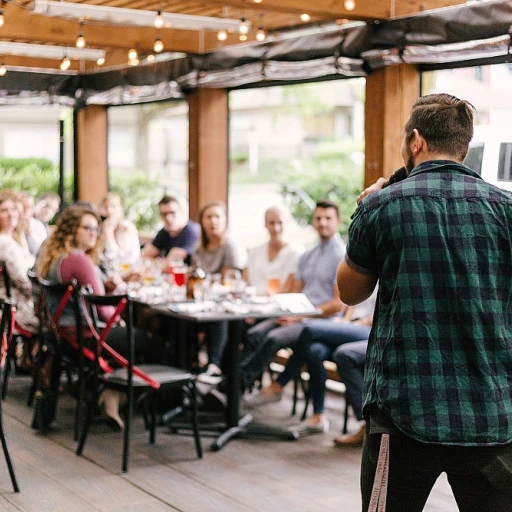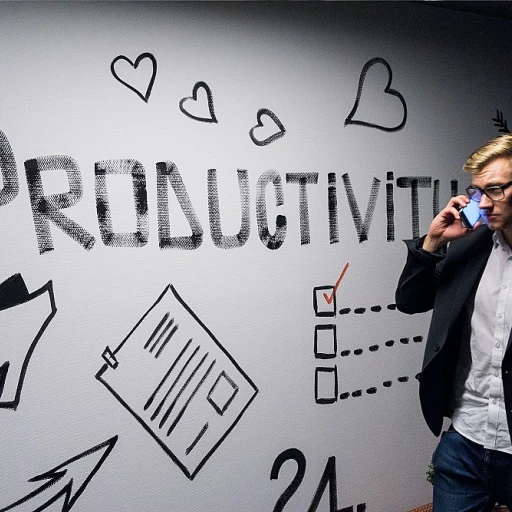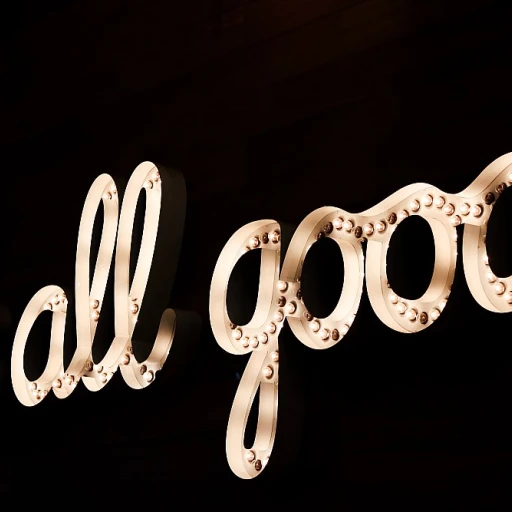
Understanding the Role of an Event Coordinator
Grasping the Essentials of Event Coordination
Embarking on a career as an event coordinator involves understanding the multi-dimensional aspects of the role, which includes being a master of organization, a savvy communicator, and a reliable planner. The primary responsibility is to orchestrate successful events by managing everything from initial planning stages to the final wrap-up. Aspiring coordinators must ensure seamless coordination between all parties involved, including team members, clients, and vendors.
Strong interpersonal skills are crucial as the job requires frequent negotiation with vendors and suppliers to secure the best deals and ensure timely delivery of services. This means maintaining open communication channels is paramount.
An effective event coordinator is adept at the art of multitasking. Juggling multiple projects and prioritizing tasks without compromising on quality is a key aspect of the job. Your ability to describe a time when you managed several projects simultaneously can provide insight into your management skills to potential employers.
Understanding the value of experience in the field cannot be understated. Employers are keen to know about your past experiences and how they've shaped your approach to event planning. Sharing a sample answer based on a past project can showcase how you navigated challenges and celebrated successes.
Gaining an in-depth understanding of these aspects will bolster your readiness for an interview in this sector, drawing from examples like those shared in the importance of role-focused questions during interviews.
Crafting the Perfect Interview Questions
Formulating Strategic Interview Questions
To conduct an effective interview, it's essential to craft questions that provide insight into an applicant's suitability for the event coordinator role. A well-thought-out set of questions not only gauges the candidate's experience but also their skills in event planning, management, and communication. For instance, asking candidates to "describe a time when they successfully coordinated an event under tight deadlines" can reveal not only their experience but also their problem-solving skills. Their responses can illustrate how they prioritize tasks and manage time efficiently. This insight is crucial when evaluating how they might handle real-life scenarios where time and resources might be limited. Understanding how a candidate interacts with vendors and suppliers is also vital. Questions like "Give us an example of how you managed vendor relationships to ensure event success" can provide a deep dive into their negotiation and relationship-building skills. Listening to their answer can highlight their ability to maintain open communication, a key quality for any successful event coordinator. When interviewing for a role that involves a lot of client interaction, it's important to ask about experiences with managing diverse teams and adapting to different client needs. An example question could be, "How do you adjust your planning process to accommodate client preferences while managing team expectations?" This helps gauge their ability to blend creativity with practical planning. To wrap up, crafting the right interview questions is about striking a balance between understanding technical skills and gauging soft skills. These questions should aim to fill the gaps between what the resume shows and the candidate's real potential. For a deeper dive into crafting such strategic questions, consider checking out this resource on navigating social work interviews, which, while focused on a different field, offers insights that can be adapted across various industries.Behavioral Questions to Gauge Experience
Assessing Past Experiences with Behavioral Questions
In the realm of event planning, understanding an applicant's past experiences is crucial to gauge their suitability for the role. Behavioral questions in an interview can offer deep insights into how an event coordinator has managed previous challenges and successes. These questions help interviewers assess the candidate's practical skills, problem-solving abilities, and overall fit for the team.
When crafting behavioral questions, it's essential to focus on specific experiences that reveal how the candidate has applied their skills in real-world scenarios. Here are some key questions to consider:
- Describe a time when you had to manage multiple events simultaneously. How did you prioritize tasks to ensure each event's success?
- Can you provide an example of a situation where you had to deal with a difficult client or vendor? What was the outcome?
- Tell us about a successful event you coordinated. What strategies did you use to manage the planning process and communicate with your team?
- Have you ever faced a significant issue during an event? How did you apply your problem-solving skills to resolve it?
These questions not only evaluate the candidate's past experiences but also their ability to reflect on those experiences and communicate effectively. The answers can reveal much about their management and communication skills, which are vital for any event coordinator. For more insights on crafting interview questions, explore our guide on essential questions.
Incorporating these questions into your interview process will help you identify candidates who not only possess the technical skills needed for the job but also have the ability to thrive in a dynamic and often unpredictable environment. As you continue to refine your interview strategy, consider the role of video interviews in enhancing the hiring process by visiting our comprehensive guide.
Situational Questions to Test Problem-Solving Skills
Testing Problem-Solving Abilities
In the world of event planning, issues are bound to arise. It’s imperative to ask interview questions that assess a candidate’s ability to approach and resolve problems effectively. The way a candidate navigates these questions can provide valuable insights into their experience and adaptability. One of the most effective strategies is to utilize situational questions. These questions require candidates to describe a time when they faced specific challenges. For instance, enquire about past experiences where they dealt with last-minute changes or conflicts with vendors. The focus here is on the solutions they proposed and whether they took the necessary steps to ensure the event's success.- Example question: Describe a time when a critical vendor canceled at the last moment. How did you handle the situation?
- Sample answer: The candidate might recount an instance where they delegated tasks to the team effectively, contacted alternative vendors quickly, and maintained open communication with the client to manage expectations. This not only demonstrates problem-solving capabilities but also highlights their ability to prioritize tasks and ensure a seamless planning experience.
Evaluating Soft Skills and Cultural Fit
Assessing Cultural Fit and Soft Skills
Understanding the intricate world of event coordination demands more than just a checklist of qualifications and experiences. The nuanced capabilities that form an exceptional event coordinator often lie in their soft skills and how they blend with the culture of your organization. When planning an interview, it’s crucial to include questions that delve into these aspects. Consider how a candidate's interpersonal skills, adaptability, and open communication style can influence your team's dynamics and client relationships. For instance:- Describe a time you had to negotiate with vendors suppliers while maintaining positive relationships.
- How do you prioritize tasks when planning multiple events?
- Give an example of how you integrated social media in your event planning strategy.
Post-Interview Evaluation and Decision-Making
Assessing Performance After the Interview
Following the interview, the process of evaluation becomes an essential step to fill the job role of an event coordinator with precision. Here's how to navigate post-interview decision-making efficiently:- Revisit Core Questions and Responses: Analyze responses given by candidates during the interview questions that highlighted the candidate’s experience in event planning, time management, and problem-solving skills. Were the sample answer and example answer coherent and reflective of real-world scenarios?
- Behavioral and Situational Insights: Reflect on how candidates handled the behavioral questions and situational questions intended to gauge experience and test their ability to handle unexpected challenges. Did their problem solving resonate with the expectations of managing events and working with vendors and suppliers?
- Soft Skills Evaluation: Consider how well candidates displayed communication skills. Open communication is crucial for coordinating with clients, team members, and event planners. Ensuring these skills are up to par helps in achieving event success.
- Team and Cultural Integration: Review how the candidate’s answers demonstrated their ability to prioritize tasks and their fit within your organization’s culture. Use their response to the described time or described moment questions to envision their adaptability into your existing event planning process.
- Leverage Feedback and Scoring: Gather feedback from other interviewers to ensure a balanced view of the candidate’s performance. Consider creating a scoring system to rate communication, management, and team integration skills, aiding in making a well-rounded decision.













